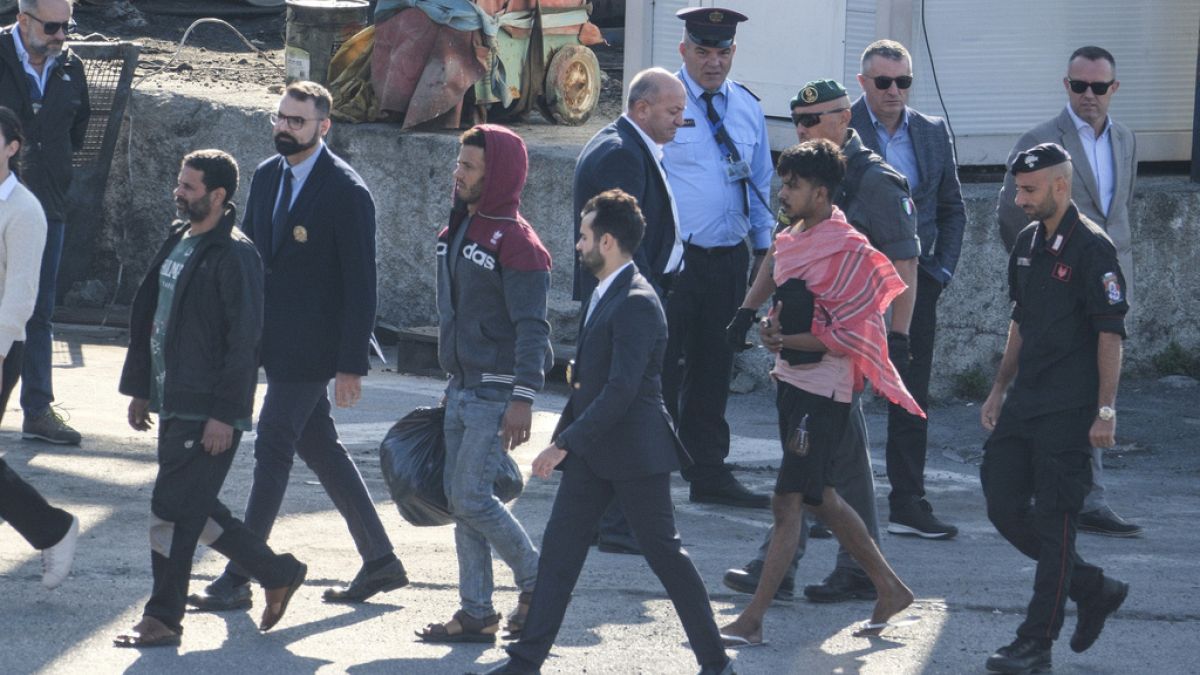Following a court judgment in Rome, an Italian navy ship returned the first 12 refugees from newly established asylum processing centers in Albania to Italy on Saturday.
The decision marks a significant setback in the administration’s ambition to outsource some of its migrant processing to Albania.
The 12 were among the first 16 migrants to be taken to the two camps, which opened last week under a five-year agreement to accommodate 3,000 migrants each month picked up by the Italian coast guard and vetted for possible asylum in Italy or return to their home countries.
However, under Italian law, each migrant’s detention must now be reviewed by special migration courts in Italy.
On Friday, a court in Rome rejected the detention of the 12, arguing that they cannot be returned to their countries of origin – Bangladesh and Egypt – because the court does not consider the countries to be safe enough.

The four other migrants already had been rejected by centre staff as vulnerable after undergoing health and other screenings.
The verdict represents an early stumbling block in the arrangement between Italy and Albania that the government of Italian Prime Minister Giorgia Meloni has hailed as a new “model” to handle illegal migration.
Meloni slammed the judges following the ruling, and said that deeming countries such as Bangladesh and Egypt unsafe means that virtually all migrants would be barred from the Albania programme, making it unworkable.
Although Bangladesh and Egypt are not at war or facing any large refugee crises, the Rome judges said their decision to deem them unsafe was based on recent international rulings that consider discrimination or persecution in even a part of a country as grounds for such a determination.
The anti-migration League party — part of Meloni’s coalition government — accused the judges of being activists issuing politically motivated decisions.
The 16 migrants — 10 Bangladeshis and six Egyptians — were transferred on government orders to Albania by an Italian navy vessel on Wednesday to undergo what is referred to as accelerated border procedures under the Italy-Albania deal.

However, now all of them must be transferred to Italy.
The centres will cost Italy 670 million euros over five years. The facilities are run by Italy and are under Italian jurisdiction, while Albanian guards provide external security.
Italy has agreed to welcome those migrants who are granted asylum, while those whose applications are rejected face deportation directly from Albania.





